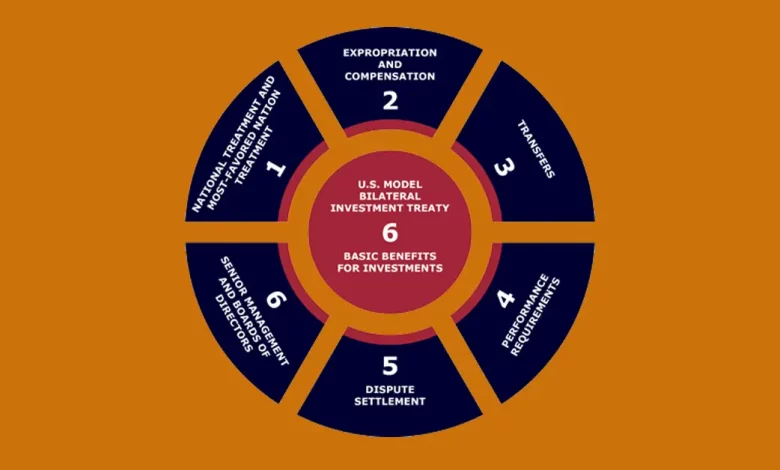Daily Current Affairs for UPSC
Bilateral Investment Treaty (BIT)
Syllabus: International Relations[GS Paper-2]

Context:
- The Union Cabinet has approved the Bilateral Investment Treaty between India and the United Arab Emirates.
- In May 2022, the two countries established a free trade agreement. India attracted a total foreign direct investment of $16.7 billion from April 2000 to September 2023.
Bilateral Investment Treaty:
- BITs are international agreements that establish the terms and conditions for private investment by individuals and companies from one country in another country.
- These agreements provide guarantees that ensure fair treatment and protection for foreign investors.
- The guarantees include national treatment, which means that foreign investors are treated the same as domestic companies.
- Additionally, fair and equitable treatment is provided in accordance with international law. BITs also protect against expropriation, limiting a country’s ability to take over foreign investments within its territory.
- Furthermore, BITs offer an alternative dispute resolution mechanism, where investors can seek recourse through international arbitration, often facilitated by organisations such as the ICSID.
India’s involvement with BITs:
- The Indian government started realising its vision on BITs in 1994 with UNITED KINGDOM to be the first country to sign a BIT.
- As of today, India has signed BITs with 83 countries, prepared several of which have already entered into force, namely 75.
- But there have been a number of challenges or cases against India that caused the creation of a new model for BITs.
- One year later, an important case was lost by India when Australia brought charges on contractual obligations to which India had violated.
- In 2015 a revised model aimed at ensuring enhanced protection for foreign investors but still leaving a balance in line with UK obligations, was henceforth developed.
- At present, 4 new BITs are signed by India and it is negotiating with 37 signing countries.
- In addition, old BITs containing 77 countries have been declassified.
- New model is credited to be a significant leap as it is expected to restore investor confidence, encourage investments in India, and support national self-reliance initiatives aimed at developing inland manufacturing and lowering import reliance.
Obstacles:
- Investor obligations in the Bilateral Investment Treaties (BITs) do not require host states to raise counterclaims against investors who violate local law, human rights obligations, or environmental obligations without a legal basis.
- Disputes in investment are not resolved in a timely manner, leading to significant costs for the government.
- The wording of the BITs is ambiguous, leading to broad interpretations by arbitrators and tribunals, resulting in disputes and misuse of certain provisions by investors.
- The government is not transparent in the International Centre for Settlement of Investment Disputes (ISDS) proceedings, disregarding domestic legal obligations and denying information under the Right to Information Act.
- India lacks enough lawyers and judges with expertise in arbitration, resulting in high fees paid to foreign legal representatives.
Conclusion:
- India should focus on signing new BITs with its existing partner countries, selectively signing BITs in priority sectors, and completing treaty negotiations early.
- The Ministry of External Affairs should ensure the implementation of the agreement with the Permanent Court of Arbitration, allowing for arbitration to be conducted in India.
- Additionally, India should promote the New Delhi International Arbitration Centre as a top-notch arbitration centre.
- It is also important to develop a pool of domestic lawyers and law firms with expertise in investment arbitration and investment treaty law to represent India and train government officials in this field.
Source: The Hindu





.png)



